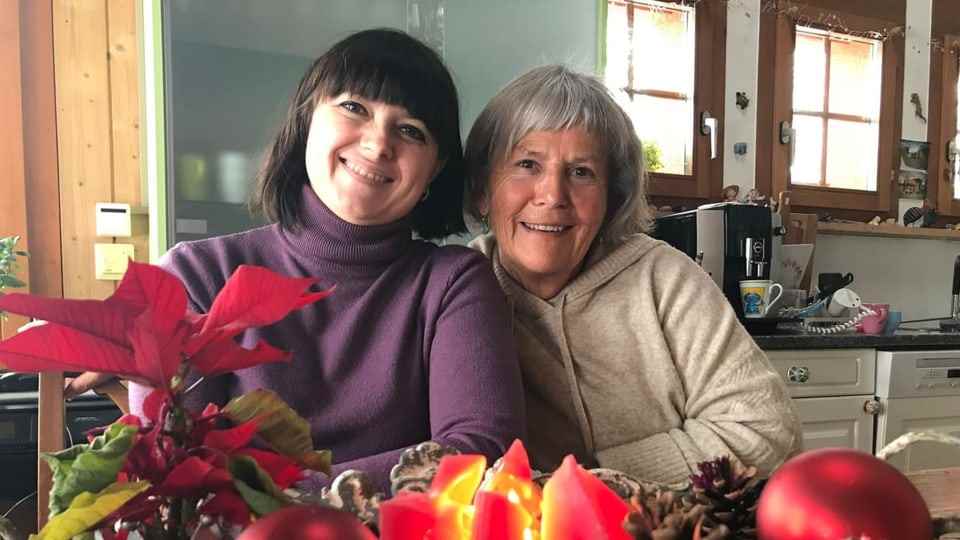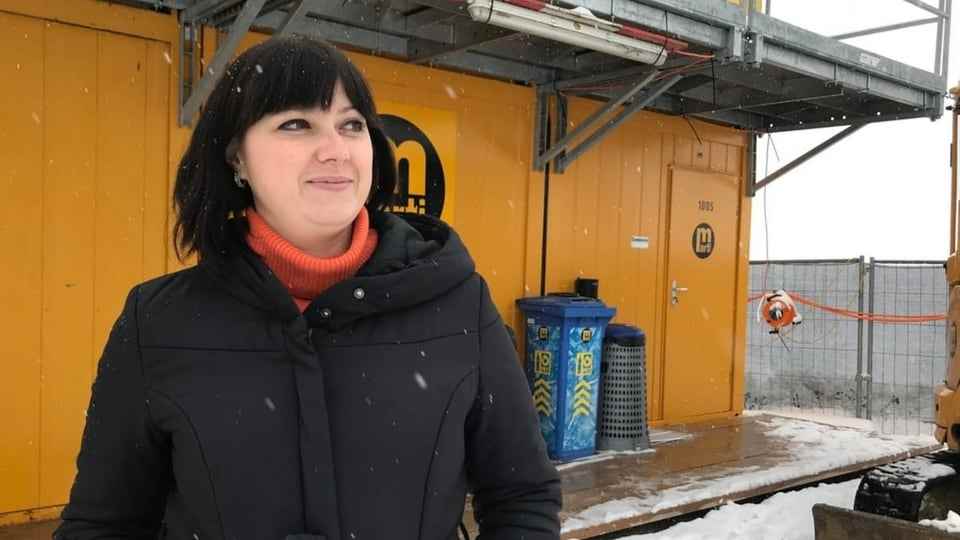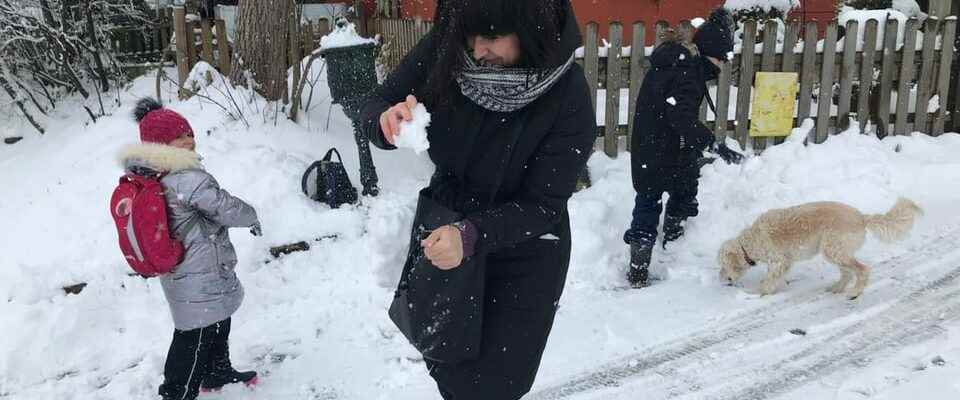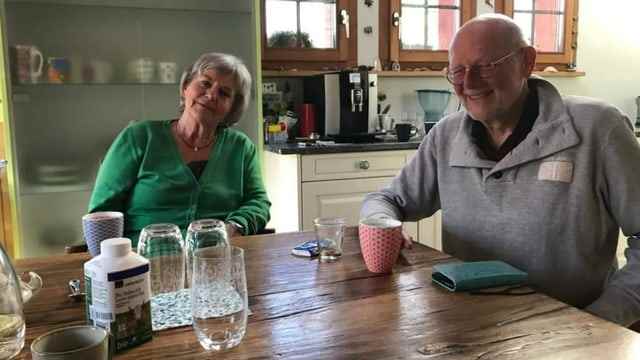contents
A family of four from the Ukraine has been living with a host family in Riggisberg, Bern, for nine months. How do you look back on this year?
A snowball fight is raging in front of the Wilhelmi family’s house just outside of Riggisberg: the children Dima and Viktoria have just returned from school and are throwing snow at mother Alona. In between, Nala, Wilhelmis’ dog, rages and barks.
Legend:
Greeting with snowballs after a successful day at school.
srf
Between two snowball attacks, Alona says: «You were so happy this morning. They got up at 7 a.m. so they could play in the snow before school.”
My children don’t want to do online school in Ukrainian anymore, they like it better here.
Seven-year-old Viktoria already knows exactly what she wants to do in the afternoon: “Play in the snow with her brother”. She says it in German, still hesitant, but she is making great progress. She and her brother have been going to school here for six months. “They feel very comfortable,” says Alona, adding: “They no longer want to do online school in Ukrainian, they like it better here.”
No water, no light, no heat
Inside, at the long wooden table in the eat-in kitchen, Christine Wilhelmi is making pumpkin soup. Everyone eats lunch, warms up. Not a problem in Riggisberg, but a big one in the Ukraine: Alona’s husband Maxim, the father of Dima and Viktoria, is still in her home town of Zaporizhia, the fiercely contested town with the nuclear power plant nearby.
Again and again he has to flee from the apartment on the seventh floor to the basement to avoid the rockets. Alona says: “At the moment the Russians are trying to destroy the infrastructure, leaving people without heat, water and light.” If possible, she calls him every day – but during the last rocket attack, the telephone lines and the Internet also broke down at times.
No other choice
Worrying about her husband is one thing, worrying about her family is another – recently the banker has been cleaning the construction workers’ containers once a week on a large construction site nearby – a temporary job. But the money is still not enough. She keeps applying for other positions, but so far without success.
How does she manage not to lose hope? She sighs deeply and then says, «It’s complicated… I have to. I have no other choice because my children and my mother depend on me.”
I have no other choice because my children and my mother depend on me.
“Hats off to Alona,” says Christine Wilhelmi, who, together with her husband Rolf, has been sharing her house and her life with the Ukrainian family for nine months. “We’ve become like a flat share.” Everyone would do their own thing. “But if Alona needs help, she knows that she can come to us at any time.”

Legend:
“Hats off to Alona,” says Christine Wilhelmi.
srf
Looking back on an eventful year
Christine Wilhelmi reviews the year. “There were a lot of positives, also a lot of difficult ones. We always had to approach each other. But the positives outweigh the negatives.”
In retrospect, she and her husband Rolf would act in exactly the same way and want to encourage other people to take in war refugees from Ukraine. “It’s a tremendously enriching experience.” Alona and her family will stay in Riggisberg longer than first thought.
It’s a tremendously enriching experience.
Next up is the Christmas party. Actually, her family would not celebrate Christmas in Ukraine until January 6th – like in Russia – but this year everything is different anyway. Alona says: «Russia attacked us. That is why Ukraine is moving away from the Russian Church. And that’s why, starting this year, we’re also celebrating Christmas in December, like here.”

Legend:
Alona and her family will stay in Riggisberg longer than first thought.
srf
Christmas is getting loud
Alona, Dima, Viktoria and grandmother Natalja celebrate on Christmas Eve with Christine and Rolf – their four adult children, partners and grandchildren, around 20 people. “We set up a big table,” says Christine Wilhelmi, laughing and adding: “Christmas is always loud for us.”
This year four more people are sitting at the table. They will also cook and thus contribute a part. A very special Christmas in this shared flat that was created by chance – which has become a substitute family for the four refugees from Zaporizhia.
Radio reports on the host family in Riggisberg

